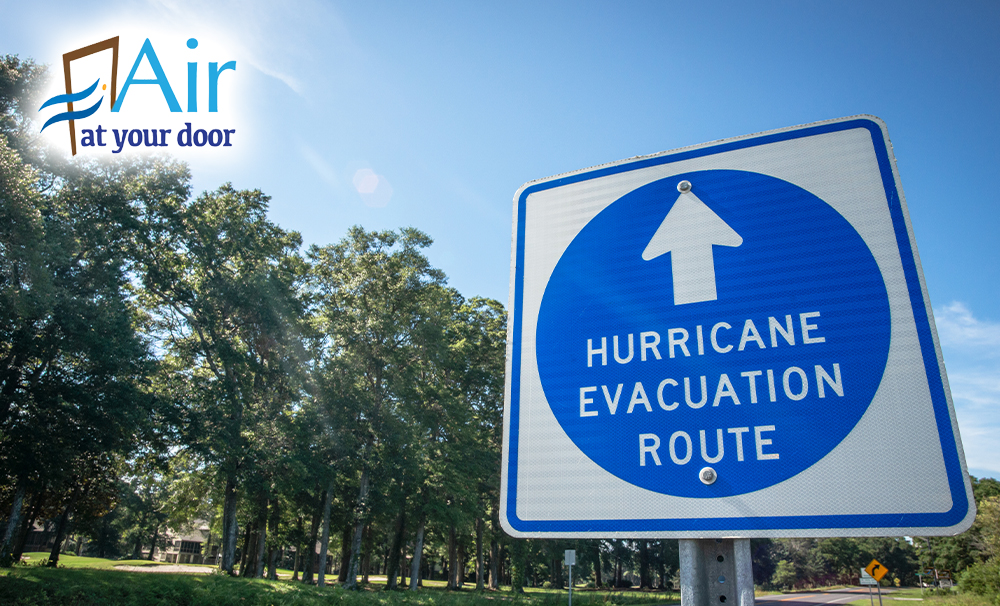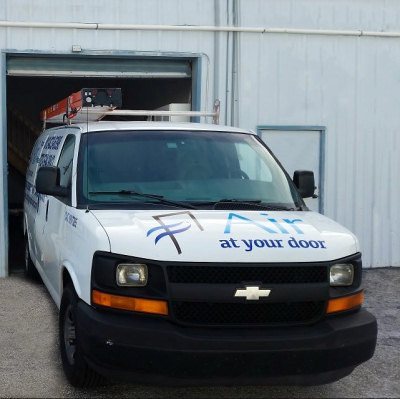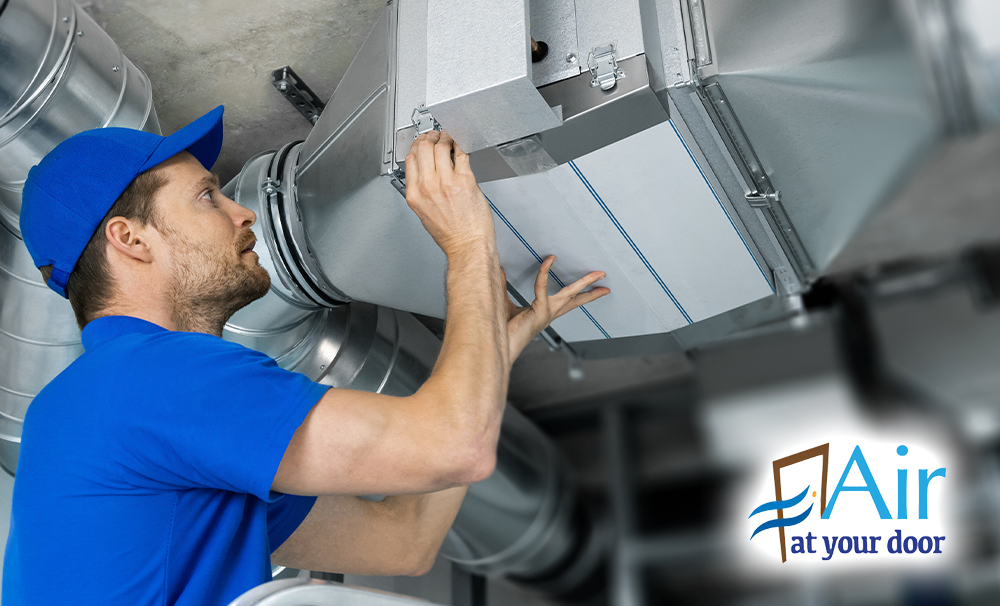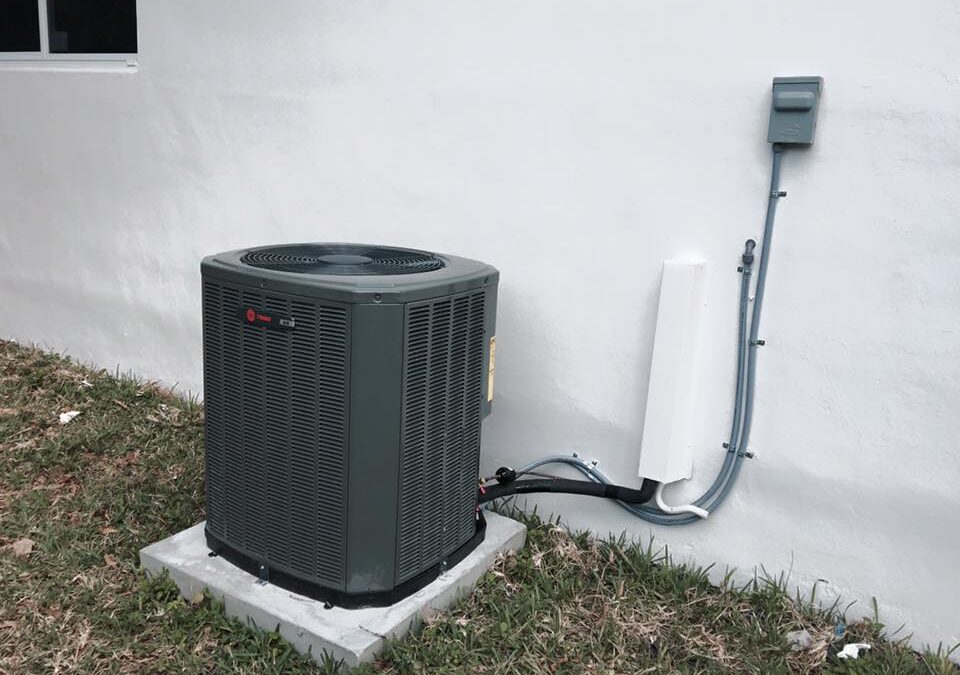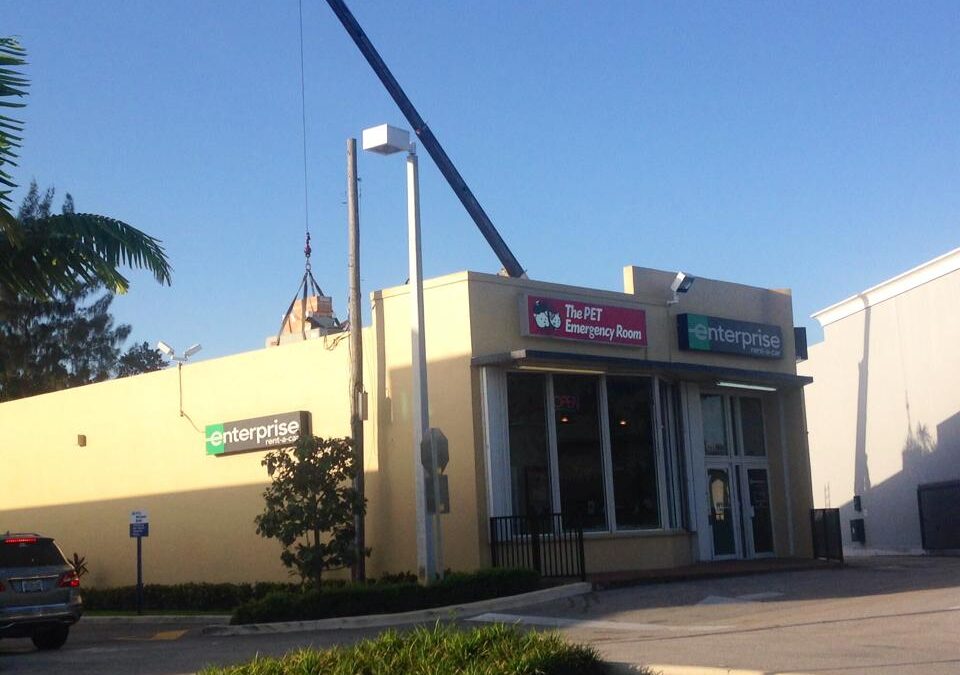The Atlantic hurricane season runs June 1 through November 30. Recently in 2024, the Tampa Bay metro area was significantly affected by Hurricanes Helene and Milton.
Before, during and after storms, it’s crucial to protect your home, including your air conditioning (AC) system. Read on to discover tips for preparing your Florida AC unit for hurricane season.
How to Protect Your Florida HVAC System
It’s no secret that when severe weather strikes in the Tampa Bay area – the “lightning capital of the world” – it’s accompanied by lots of rain, wind, flooding and power outages. With almost all homes in Tampa Bay having at least one outside air conditioner condenser unit, Florida homeowners should consider these questions before a strong storm or weather event:
- How can I best protect my outdoor HVAC equipment from water damage during a flood?
- How can I prevent outdoor HVAC equipment from becoming a projectile in high winds or being damaged by other projectiles?
Whether you decide to shelter in place or evacuate prior to a major hurricane or tropical storm, use these seven tips to prevent and minimize damage to your AC unit2:
BEFORE THE HURRICANE OR STRONG WEATHER EVENT
1) Elevate / Raise Your Outside AC Unit
Did you know that greater than 30 percent of Tampa Bay metro residents live in a moderate to high risk flood zone? The State of Florida building code requires that new AC systems installed in flood zones be raised to minimize damage during flood or high water weather events. But why wait until installing a new AC system? You can elevate your older / existing outside AC condenser to prevent flood / water damage.
Please call Air At Your Door to schedule a service call so that we can help you raise your AC condenser unit in a safe way that follows recommendations per Florida Building Commission and FEMA. Please remember that HVAC systems should only be elevated, moved, or leveled by professionals. Homeowners and amateur HVAC handymen often make the mistake of damaging refrigerant lines during the elevation process. (which unfortunately is an expensive mistake)
HPAC Engineering, an HVAC mechanical systems magazine, estimated that over 130,000 outside AC condenser units were damaged in 2017 in the Houston metro area due to Hurricane Harvey. Hurricane Harvey, which caused catastrophic flooding and multiple deaths, was a Category 4 hurricane that made landfall in Texas and Louisiana in August 2017.
2) Cool Down Your Home Right Before the Storm
Power outages are common after severe storms in Pinellas, Pasco and Hillsborough counties. To help keep your home comfortable when the power goes out, turn down your to a cooler temperature than normal. You can also close the blinds, draw the shades, and keep windows and doors shut tight to keep the cool air in and the warm Florida air out.
3) Clear Debris Away from Unit
Tropical depressions, tropical storms and hurricanes bring high gusts of winds (anywhere from 34 mph to 111 mph or higher1) that can cause loose debris and objects to take flight and cause damage to your AC unit. Be sure to store your patio furniture, garden décor and lawn equipment inside your garage or home, and trim weak branches off trees that may break off in a storm. Also, remove abnormal amounts of leaves, dirt and other debris that are too close to your outdoor unit3.
DURING AND AFTER THE HURRICANE OR STRONG WEATHER EVENT
4) Turn Off Your AC System
If you decide to shelter in place, turn off the power to your AC system from the thermostat or circuit breaker once the storm strikes. Lightning can cause electrical surges and damage your system. Wind gusts can also cause loose debris to get stuck in your unit and burn out the motor.
5) Cover and Secure Your Unit
Once the power is cut off from your system, consider covering your outdoor unit with a tarp, weather shield or AC cover (like this one) to keep out debris. Ensure it’s tightly fastened, and if you have a condenser on a second story, secure it with hurricane ties (like these) as well. After the storm, remove your covering before you turn the system back on.
6) Visually Inspect Your Unit for Damage and Check the AC Unit for Leveling
Don’t turn your AC system back on until it’s safe. First, visually check the inside and outside of your unit for debris, disconnected pipes or wires, and flooded water (especially where storm surge is a danger near beaches and shorelines in Clearwater, Safety Harbor, Bellair, St. Petersburg and Indian Rocks). We recommend taking photos of any water or visible physical damage for documentation and insurance purposes. If something does not look right, please contact an HVAC technician at Air At Your Door Tampa to schedule an inspection or to repair your unit.
If you notice that your outside air conditioner condenser unit does not look level after the storm, then you should definitely give us a call to prevent further damage to your HVAC equipment. At the bottom of the AC compressor you want the oil to stay level (in order to lubricate the motor properly). In addition to compressor problems from tilted outside units, a well-tuned AC system allows refrigerant to smoothly flow through its coils (remember Newton’s law of universal gravity).
7) Schedule an AC Tune Up with Air At Your Door
Even if your outside condenser unit looks fine after a hurricane, we still recommend that you schedule a service call with Air At Your Door to do a tune up. An AC tune up is a minimal expense that can potentially save you thousands of dollars after a hurricane or strong storm.
How to Prepare for a Hurricane in Pinellas County / Tampa Bay
While you protect your AC unit during a storm, consider the many ways to take precautions for yourself, family and property in Tampa Bay, one of the most vulnerable metropolitan areas in the world to a major hurricane4.
Always follow your local weather officials, and be sure to have a hurricane preparedness plan ready to ease panic and give you peace of mind. Below are some simple tips to keep your safe in Pinellas County5:
- Know your evacuation zone
- Assemble an emergency survival kit for your family’s needs (one week minimum)
- Create a personal disaster plan
- If you have to evacuate, decide where you’ll go once an order is made
- If you don’t have to evacuate, prepare hurricane shutters to protect your windows and brace your entry doors and garage door
For more tips, print and reference the Pinellas County Hurricane Preparedness Guide.
When should I work with a professional HVAC company?
If you need assistance preparing, inspecting or repairing your AC system for severe weather and storms – or anytime throughout the year – turn to your air and heating experts at Air At Your Door. At Air At Your Door, we provide top-notch air conditioning services for both homes and businesses throughout Tampa. Whether you’re looking for a quick fix or a full system upgrade, our team delivers fast, reliable solutions tailored to your comfort needs. From residential cooling to large commercial projects, we’re just a call away from keeping you cool year-round!
—–
APPENDIX:
[1] Florida Building Code: Ventilation and AC Systems Fact Sheets
[2] Trane: Prepare Your A/C From Storms
[3] Rheem: Five Ways to Prepare Your Air Conditioner for the Summer Heat
[4] Washington Post: Sea-Level Rise Could Destroy Tampa Bay if a Major Hurricane Hits

